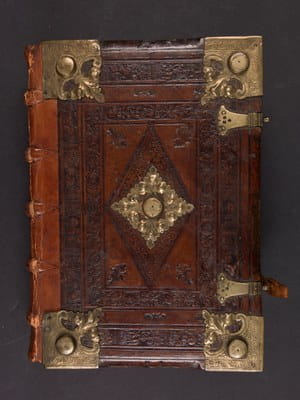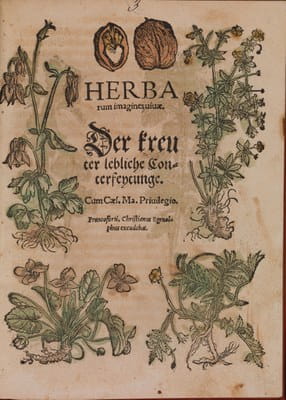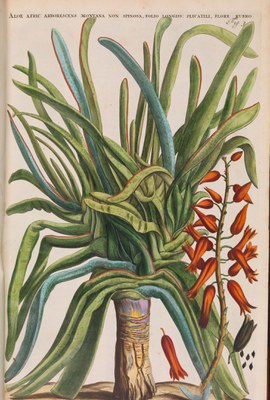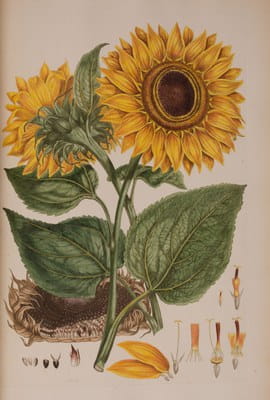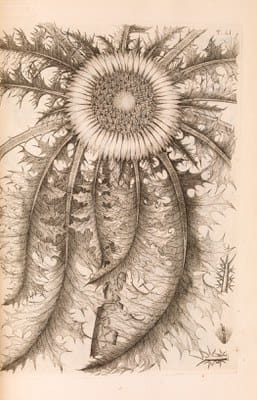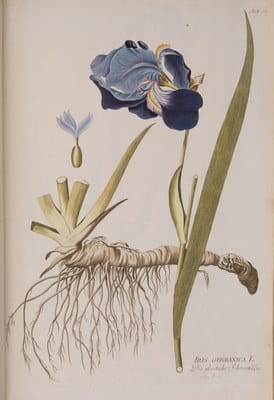Botany and Surgeons
12 May 2015
Steffi Sams
In the 19th century many surgeons also practiced as apothecaries. The study of materia media, the knowledge of the therapeutic properties of substances, in particular plants, was part of the education of anyone working as a medical practitioner.
The knowledge expected of a prospective fellow of the College in the 19th century was rather different from today:
Regulations respecting the Education and Examination of candidates for the diploma of member of this College
The following are the Subjects of the Examination (No. 11) during the years 1863 and 1864, viz.:
Part I.
- Reading aloud a passage from some English author.
- Writing from dictation.
- English Grammar.
- Writing a short English composition; such as a description of a place, an account of some useful or natural product, or the like.
- Arithmetic. No Candidate will be passed who does not show a competent knowledge of the first four rules, simple and compound, of Vulgar Fractions and of Decimals.
- Questions on the Geography of Europe, and particularly of the British Isles.
- Questions on the outlines of English History, that is, the succession of the Sovereigns and the leading events of each reign.
- Euclid, Books I and II.
- Translation of a passage from the first book of Caesar’s Commentaries, “De Bello Gallico”.
Part II – Papers will also be set on the following seven subjects, and each Candidate will be required to offer himself for examination on one subject at least, at the option of the Candidate, but no Candidate will be allowed to offer himself for examination on more than four subjects:
- Translation of a passage from St. John’s Gospel in Greek.
- Translation of a passage from Voltaire’s “Histoire de Charles XII”.
- Translation of a passage from the first two books of Schiller’s “Geschichte des dreissigjährigen Krieges.” Besides these translations into English, the Candidate will be required to answer questions on the Grammar of each subject, whether compulsory or selected.
- Mathematics. Algebra to Simple Equations inclusive.
- Mechanics. The questions will be chiefly of an elementary character.
- Chemistry. The questions will be on the elementary facts of Chemistry.
- Botany and Zoology. The questions will be on the classification of Plants and Animals. The quality of the handwriting and the spelling will be taken into account.
The Library of the Royal College of Surgeons has an outstanding collection of early herbals and botanical books. Most of these are donations from surgical fellows who studied botany or had a personal interest in plants and natural history. Plarr’s Lives of the Fellows includes many such surgeons, for example: Joseph Lister, pioneer in antiseptic surgery, who was second in the list of candidates obtaining honours in Botany, according to his University of London certificates dated 14th August 1845.
The images show some examples of items in our collection:
- Herbarius zu Teutsch or Gart der Gesundheit 1485
- Egenolff Herbarium imagines vivae 1536
- Dodoens Florum et coronariarum 1569
- Commelin Horti Medici Amstelodamensis 1701
- Miller An illustration of the sexual system by Linnaeus 1777
- Allioni Flora Pedemonatanae Icones 1785
- Plenck Icones Plantarium 1788.
Steffi Sams, Information Services Manager

